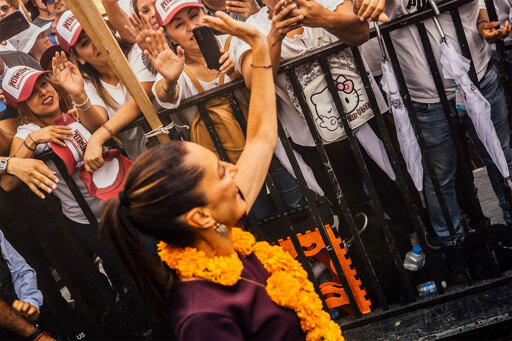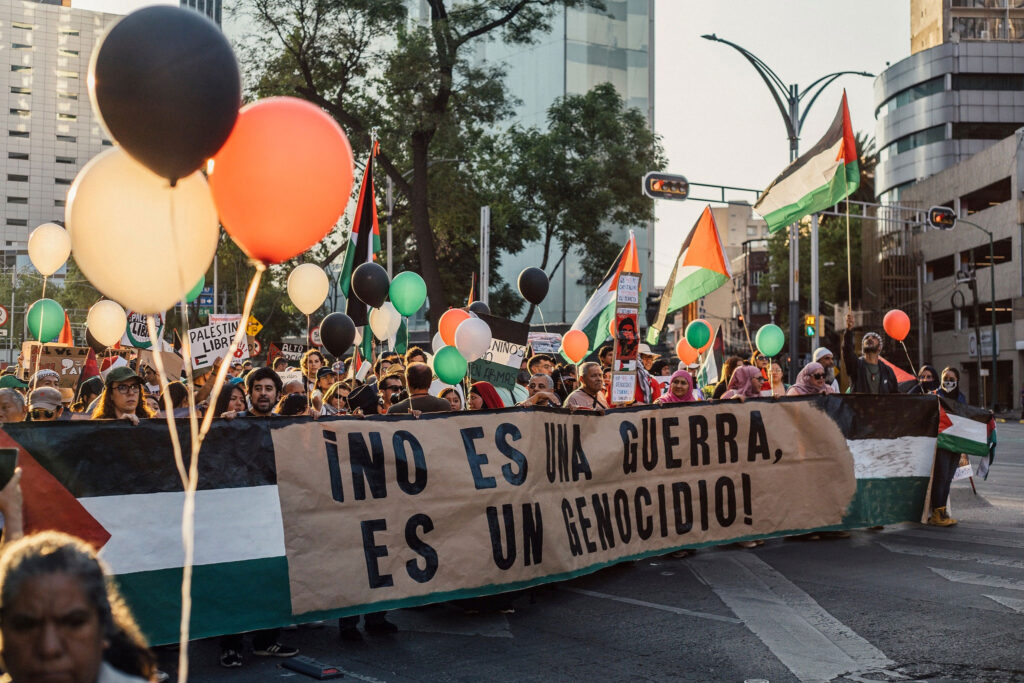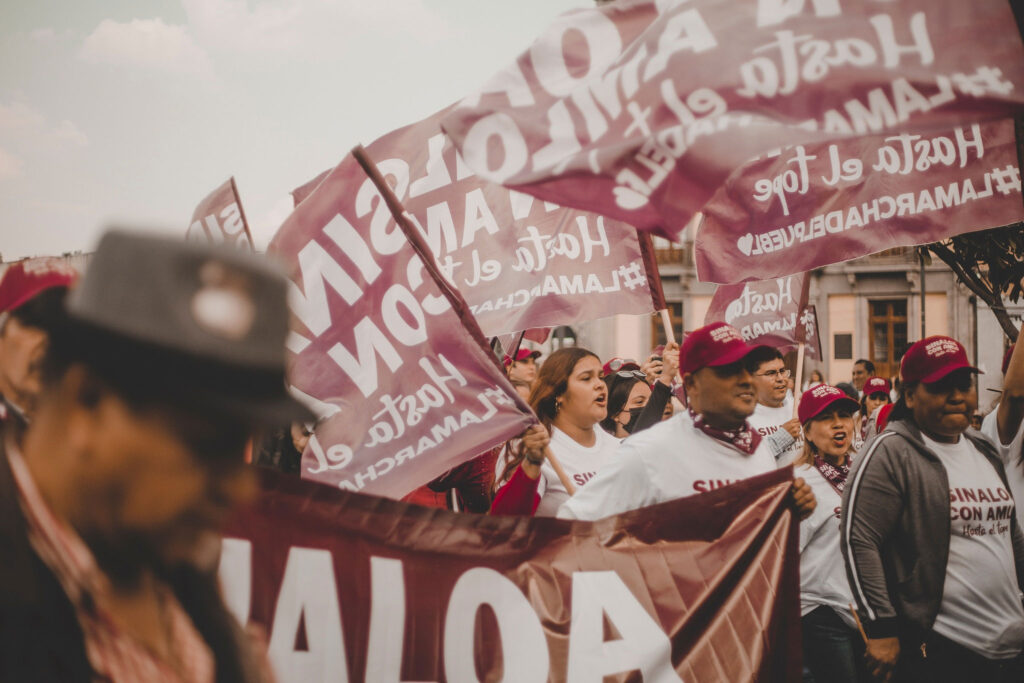How does a political party stay in power for 70 years, as the PRI did in Mexico? The 1917 constitution limited presidents to only one six-year term, preventing one-man dictatorships. But it didn’t prevent one-party dictatorships.
The PRI took control of all Mexico’s organizations, governmental and non-governmental. It appointed judges who did its bidding, such as allowing wealthy leaders to avoid paying taxes. It even appointed union presidents, whose job was to “protect” the companies allied with the PRI from workers’ anger. Presidential continuity? Called the dedazo, from dedo or “finger,” each president pointed his finger at the man he chose to succeed him, and that man was duly elected.
The president and the PRI pointed a different finger — the middle one — at the people! F… you! Your votes, your lives, your hopes don’t count!
In 2000, for the first time, the people elected a president from a different party — the PAN. But was that a real choice? The neoliberal PAN was a “mini-me” of the PRI, which was obvious when they later joined forces in the “PRIAN,” as the people snarkily called it. Under these conditions, in 2014, the anti-neoliberal Morena party was formed.
In 2018, a groundswell of popular support for the Morena candidate, Andrés Manuel López Obrador, swept him into office. The vote was so overwhelming that even the usual machinations of electoral fraud on the PRIAN’s part couldn’t invalidate the results.
Mainstream pundits claimed that AMLO used the dedazo to ordain his successor, Claudia Sheinbaum. But in fact a popular poll chose her, and she’s an even more popular president than AMLO! As Javier Bravo recounts, Morena is the party not of the oligarchy but, for the first time ever, of Mexico’s working people.
At polling stations, voters’ fingers are imprinted with an ink stain to show they voted. That ink stain has become a point of pride: now the people’s fingers point to the nation’s next leaders.

Javier Bravo is a left-wing Mexican activist who calls himself a Morena dissident; he is pushing from within to improve its members’ ethical and political education and bring Morena closer to the Mexican people. An archaeologist, teacher, and union activist at the University of Guanajuato, he believes political education is the main activity that will enable Morena to stay on the path to transformation. To that end, he coordinates the local education program for rank-and-file Morena members
Were you involved with Morena before it became a political party? How did it become a party?
In 2005, the right wing attempted a coup against AMLO when he was mayor of Mexico City. It backfired. The social left was outraged — including me! That’s when I got involved. AMLO emerged stronger than ever.
AMLO was in the Party of the Democratic Revolution, or PRD, supposedly to the left of the ruling party, the Institutional Revolutionary Party, or PRI. But he saw that the PRD was becoming garbage — its leaders just looking for personal benefits. Mexico needed a new structure based on people from the social movements in order to challenge the existing system.
In 2010, AMLO came to Guanajuato and spoke to us about forming a new organization. Two points stuck with me. First, he talked about ending corruption, which wasn’t only about politicians getting rich from their positions. Everything that fails to help the common people IS corruption! It’s violence! It destroys people’s aspirations for a life of well-being.

AMLO, then mayor of Mexico City, speaks at his daily news conference on Friday, April 1, 2005. (Susana Gonzalez / MCT / Tribune News Service via Getty Images
Second, while the leftist tradition often paints electoral politics as a nasty business to avoid, AMLO rebutted that view. He asserted that we are all politicians, political actors. That is, we can enable others to live poorly or to live well. We can liberate ourselves.
At this stage, we were following AMLO as a person. Then, as he requested, we coalesced around the principles he stood for to become a social movement. Morena, the “Regeneration Movement,” became an official NGO.
Next, we organized thousands of assemblies to decide whether to become a political party. I was pro-party myself — we had to be more than an opposition group. Only as a political party could we change the laws and even the Constitution. We had to stop depending on existing political parties to pass our agenda — making us no more than “left parasites”! The YES vote won.
To qualify as an official national party, we needed 3% of the electorate, and, in 2014, we reached that milestone. In 2015, we won 8% of the vote in the midterm elections. Then in 2018, AMLO won the presidency with 55% of the vote, an amazing leap of popularity in a few short years.
Is Morena still rooted in the social movements, or has it become an electoral machine? President Sheinbaum has a nearly 80% approval rating — but approval of the Morena party is only around 50%.

Morena IS a movement! It has two million party members, but 36 million voters support it, and that number keeps growing.
At the municipal level, some corrupt mayors ran on the Morena ticket, but they weren’t leftists. Also, nepotism has been a long-time feature of our government, and it continues today. These unethical Morena politicians might be undermining party support.
But nothing is perfect because of the finite human condition. Shit happens!
What’s different is that we talk openly about the corruption within our own ranks. We don’t protect corrupt politicians; we name names of those who ignore AMLO’s three principles: “Don’t lie, don’t steal, don’t betray the people.” We prosecute where necessary.
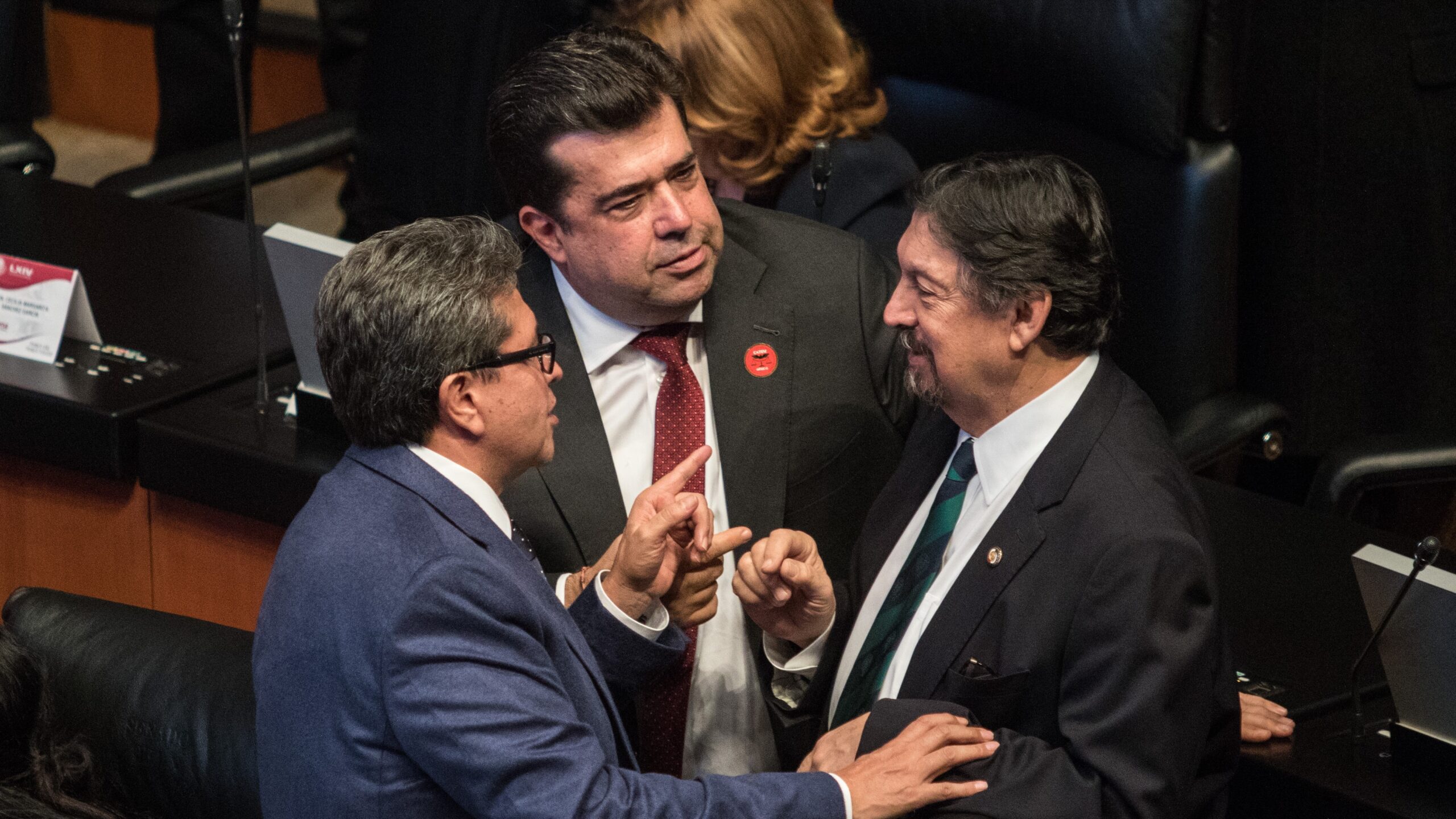
Ricardo Monreal Ávila, Pedro Haces Barba, Napoleón Gómez Urrutia.
Ricardo Monreal, a former PRI official known to be corrupt, now coordinates the Morena delegation in the Chamber of Deputies. Is that just “shit happens”?
Monreal is an opportunist. But people know him. In 2023, out of eight Morena candidates putting their hats in the ring to run for president, Monreal came in last. Don’t worry, he’ll never be president!
However, he played a necessary and good role when he negotiated with the PRI and PAN parties to promote a dialogue with them in order to get the votes required for Morena reforms. He’s not the devil.
But there are devils — like Lilly Téllez! In 2018, AMLO knew quickly he’d made a mistake in inviting her to run for senator on the Morena ticket. She emerged as a hard rightist, who quit Morena in 2020 to become a PAN party leader. She called the AMLO and Sheinbaum governments a military dictatorship, even allying with the US against Mexico’s sovereignty.
Many opportunists have joined Morena for their own gain. Should Morena have stricter rules for joining?
No. We’re doing the opposite. Morena has started a membership campaign, and anyone can join, because it’s a constitutional right to join any party you choose. However, at the party congress in June 2025, our party leader, Luisa Maria Alcalde, proposed that grassroots experience be a qualification for political office. We’ll see if this works.
In August, Morena began organizing sectional committees in every electoral district in the country. I like this idea because the committees’ objective is to bring Morena closer to the people. Morena will conduct political education, train new leaders and find new candidates.
In the past, we’ve tried other methods such as committees based on either a geographical or a constituency basis. For instance, I was asked to organize the professors from Guanajuato universities. The idea of sectional committees grew out of lessons learned in previous efforts.
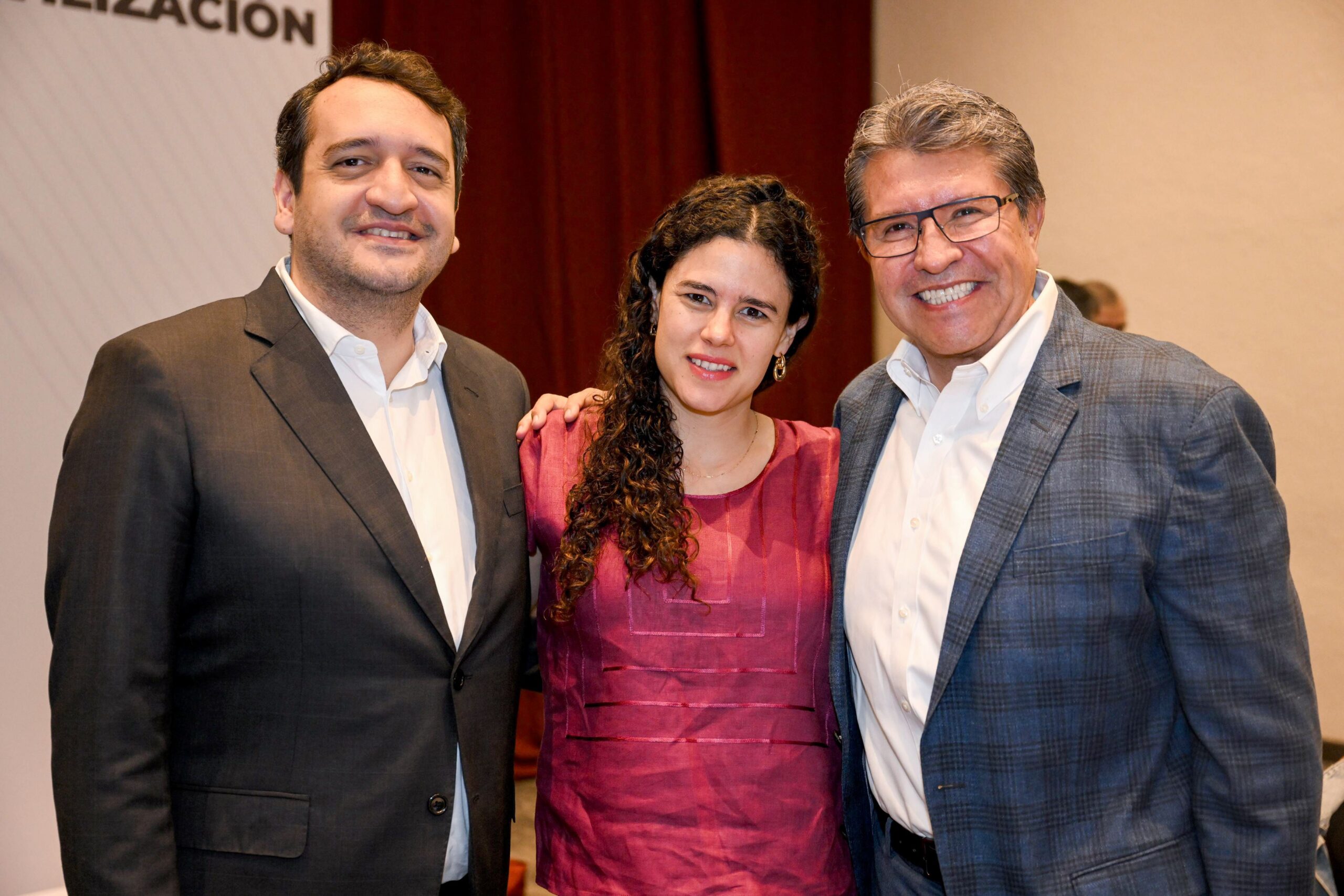
Andrés Manuel López Beltrán, Luisa María Alcalde, Ricardo Monreal Ávila.
What do you think a US progressive stance toward Mexico should be?
The Morena government hasn’t just made a few legal reforms and some new social welfare programs. We’re achieving a total transformation of our political regime — a new revolutionary project. When we talk about the “people,” we mean the excluded, the exploited, the poor — not Carlos Slim, not Peña Nieto. When we talk about “corruption,” we don’t only mean not taking bribes, but having ethics in our political and personal lives, dedicated to serving the people. When we talk about support from the people, we don’t only mean their ballot. We mean their understanding that all Mexicans must work for the collective good, not for individual gain.
Today, the US is the main threat to the world’s people. Its leadership is corrupt, violent and materialistic, and they demonstrate clearly how those practices impoverish and repress even their own people. Therefore, US leftists should concentrate on fighting their own government’s fascist, imperialist agenda. A focus on criticizing Mexico’s imperfections strengthens the hand of the US.
In the minds and eyes of the world, Mexico is inspiring. It is moving toward real democracy and defends its own sovereignty and the sovereignty of all countries against Western domination. Of course, it’s not perfect. We welcome helpful criticism from US leftists — but given how the US threatens us, we need you to support Mexico’s sovereignty and its radical path of transformation.
I’m not naïve, but I have hope. I’m committed to making our country and our world free from corruption in the broadest sense.
Meizhu Lui’s experiences as the daughter of Chinese immigrants and as a single mom led her to focus on addressing inequalities based on race, gender, and immigration status. A hospital kitchen worker, she was elected president of her AFSCME local. She coordinated the national Closing the Racial Wealth Gap Initiative, and co-authored The Color of Wealth: The Story Behind the U.S. Racial Wealth Divide. Liberation Road, a socialist organization, has been her political home.
“Morena’s main enemy is within Morena”
September 8, 2025September 8, 2025
Morena founder Eduardo Cervantes Díaz spoke at a press conference advocating for grassroots committees for Morena militants and against corruption, and then was removed from his position.
For The Good Of All, Sever Relations with israel
September 4, 2025October 9, 2025
What does “Mexican Humanism” mean when our country’s representatives cling to something they insist on euphemistically calling a “peaceful solution” to mediate between “conflicting parties”?
The Future of the Fourth Transformation: Plebeian Assault or Pseudo-Technocratization?
August 19, 2025October 9, 2025
The establishment of Morena’s Sectional Committees for the Defense of the Transformation is promising, but internal rules continue to restrict fundamental rights, potentially turning the committees into mere instruments of mobilization without political representation.
The post Morena: From a Movement to Leading a Nation appeared first on Mexico Solidarity Media.
From Mexico Solidarity Media via this RSS feed


